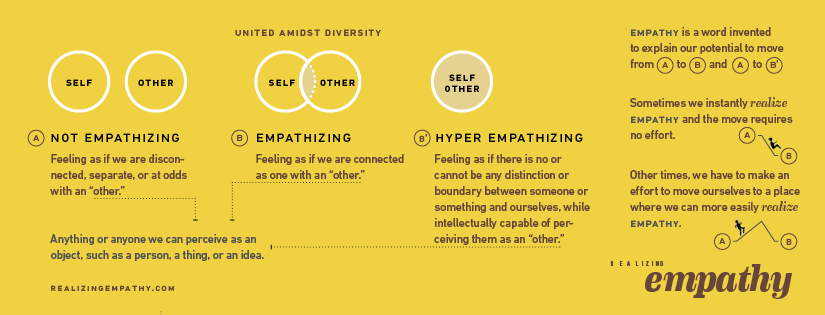What if
happiness
is simply the momentary absence
of our tendency
to predict
the negative.
Tag: Worry
Perceived Aggression
Despite best intentions,
what we say
out of care,
concern,
or worry,
can be perceived
as aggression
by others.
Being Strong
At our first session,
she would habitually use the word
“strong”
to refer to herself.
“To be strong,”
she said,
“I should
Stop worrying and,
instead,
Focus on problem solving.
I should
Stop blaming my employees and,
instead,
Blame myself.”
On the surface,
these sounded wonderful,
virtuous, even.
But after a month
of realizing empathy
with herself,
she discovered that
by “strong”
all she meant was
“numb to pain & discomfort.”
…
There’s a world of difference
between following advice
and realizing for one’s self
through a journey
of maturation.
A journey through which we learn
new
or unexpected
choices.
Without the journey,
“stop worrying,”
can merely mean
“repress stress & anxiety.”
“Focus on problem solving,”
can merely mean
“focus on eliminating fear & concern.”
“Blame myself,”
can merely mean
“lead with unconscious shame.”
…
To frame these phenomena
as someone’s “fault”
prevents
a deeper exploration.
More valuable
would be to recognize what happens
when we lack
a sense of choice
or proper support.
Beyond the Horizon of Cynicism
One of the most common block to insight
is cynicism.
To realize empathy with cynicism
it can be useful to model it
as doubt + judgment.
This implies that
once we strip our cynicism of judgment,
we can more clearly confront our doubt.
Then as we develop the requisite skill and will
to zoom into our doubt,
it can lead to the discovery
of our worry or concern,
ultimately fear,
over a future we do not wish to see happen.
When we can clearly see and hear
this undesired future
we can also increase the probability
of realizing empathy,
which ultimately helps us create choices,
the kind that gives us a feeling of possibility
beyond the horizon of cynicism,
which is a key
to designing toward a future
we do wish to see happen,
instead of staying stuck
unconsciously envisioning a future
we do not wish to see happen.
The Journey of Three Emotions
When we, as founders—
especially those with humane intentions—
work to fertilize change in our organizations,
3 types of emotions often rise up
in ourselves:
- Overwhelm
- Anxiety (also Worry / Doubt / Concern / Fear)
- Frustration (or Anger)
When we don’t spend the time
to realize empathy with ourselves
in relation to these emotions,
these can easily develop into:
- Sense of Isolation
- Hopelessness
- Helplessness
Which, over time, can calcify as:
- Sense of Betrayal
- Shame
- Resentment (or Contempt)
